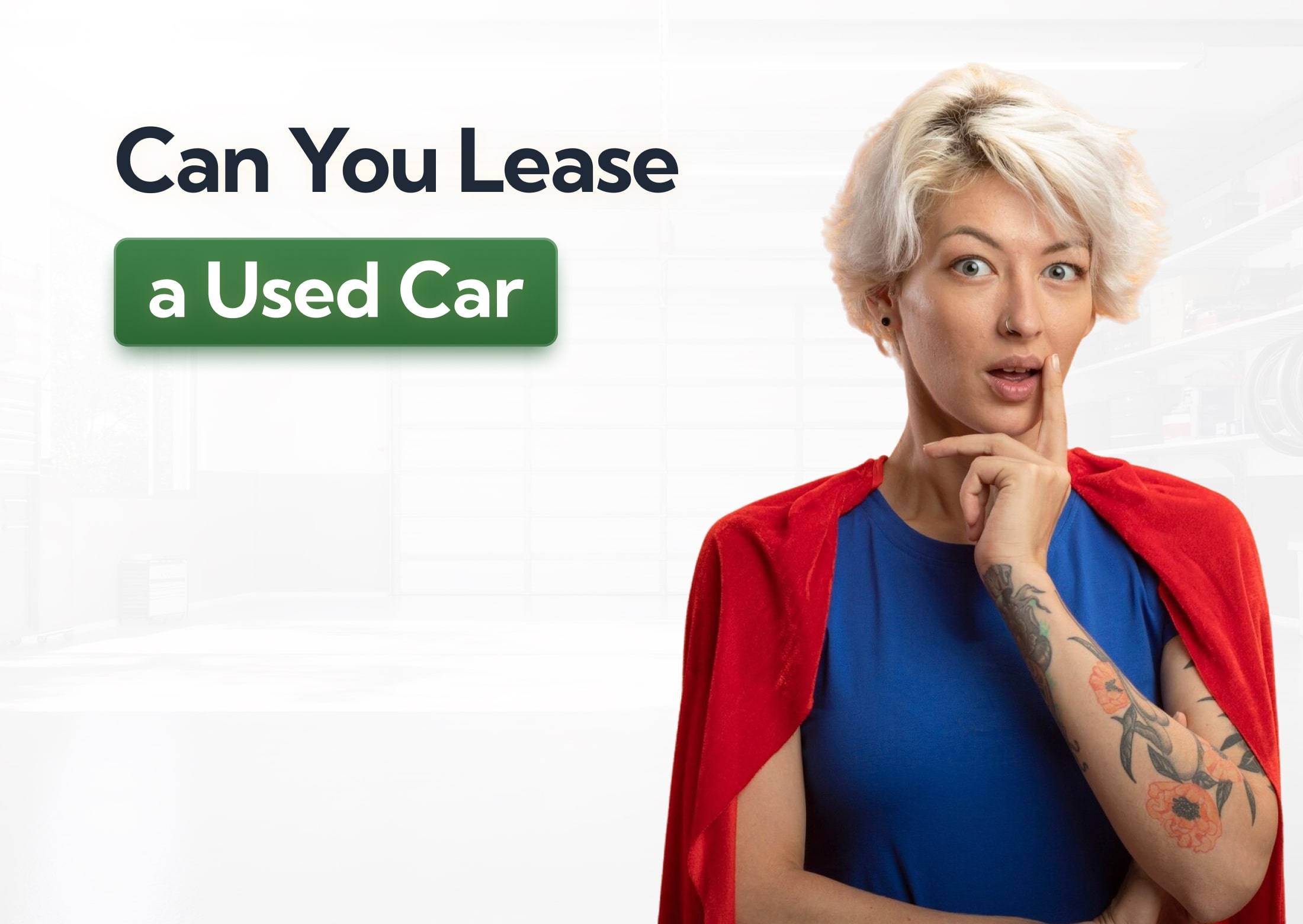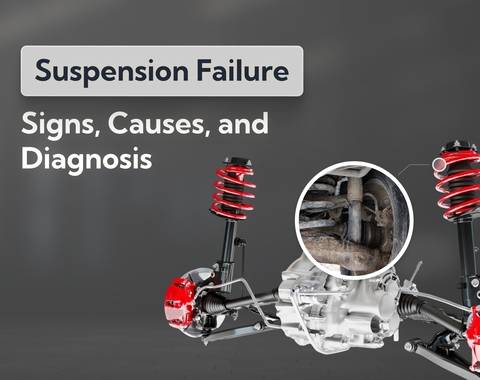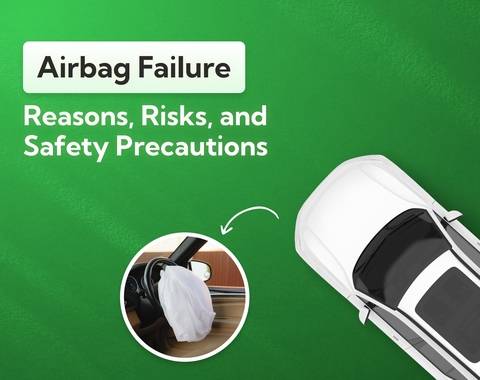Can You Lease a Used Car in the UK in 2025?
Yes, you can lease a used car in the UK, though your options are more limited than for new models. Used car leasing offers lower monthly payments and shorter terms while giving you access to nearly new vehicles. This guide explains how it works, what it costs and when it makes sense for you.
Last updated: 16th October, 2025

Award-winning CEO driving growth and social impact across automotive, recycling, and technology-led enterprise platforms.

Listen to this story
Yes, you can lease a used car in the UK, though your options are far slimmer than if you were after something brand new.
Used car leasing typically covers nearly new models, ex-demonstrators and cars that have just finished their first lease term. These vehicles still have plenty of life left but come at a lower monthly cost and shorter contract lengths.
The process is simple:
- Choose your car from an approved used leasing provider.
- Agree on the terms mileage, duration and monthly cost.
- Sign the contract and drive away once checks and payments are sorted.
It’s a growing niche, especially as drivers look for more flexible and affordable alternatives to new car leases and buying used cars outright. But you won’t find the same range or marketing push from dealers.
So, the answer to your question, “Can I lease a second-hand car?” is yes, you can lease a second-hand car. In this guide, I’ll show you exactly how.
What's in this article
How does leasing a used car work?
Leasing a used car isn’t all that different from leasing a new one. The main difference is you’re getting a car that’s already had a life. Maybe it was a dealer demo. Maybe it was just returned by the previous lessee. Either way, it’s been inspected, refurbished and priced accordingly.
Here’s how the process typically goes:
1. Find a provider.
Start by finding a leasing company that actually offers used cars (not all do). Most work through dealers or specialist brokers who handle nearly new or ex-demonstrator vehicles. There are also some online platforms and comparison sites like Hippo Leasing and Leasing.com, which you can use to compare options.
Make sure to check the minimum contract length, upfront fees and customer feedback before trusting any one company outright. The best deals will always have transparent pricing, low admin fees and a full inspection included. A limited warranty may or may not be.
2. Choose your used car.
You’ll usually pick from cars that are one to three years old. These have already taken the biggest depreciation hit, which is what keeps your monthly payments lower.
Where you shop depends on what you want.
- Dealerships are great for nearly new or ex-demo models with manufacturer backing.
- Online brokers often have wider stock, including older cars at lower monthly prices.
- And if you’re after something specific like a luxury or electric model, specialist leasing firms are usually the best place to look.
Set your budget first. Used car leases can look cheap up front, but remember to factor in mileage limits, maintenance and the initial rental fee.
And before you proceed, think about how you’ll actually use it. If you’re commuting daily, focus on fuel economy and comfort. If you’re after something stylish for weekends, you can prioritise performance or design instead.
3. Check car availability and terms.
Used car lease deals depend on what’s available. You’ll know what that is because used stock available for lease will be displayed clearly as such. Expect shorter contract lengths (12 to 24 months as opposed to 36 to 48 months) and stricter mileage limits than new car leases.
These details matter because they affect everything: your monthly cost, overall value and how much freedom you’ll have with the car.
Say you lease a three-year-old BMW for 12 months at 8,000 miles a year. If you end up driving 12,000, you’ll likely pay 10 to 20 pence per extra mile. That’s £400 to £800 gone. Or pick too short a term and that end date will sneak up on you quickly.
4. Understand the leasing costs.
The price factors in the car’s age, mileage, residual value and the finance company’s risk. A new-ish Audi or BMW that depreciates fast will still cost more per month than an older Ford, even if both are technically ‘used’. The older the car, the lower the monthly cost but maintenance and wear-and-tear terms will be tighter.
Here’s what you’ll typically pay:
- Initial payment: Usually equal to 3 to 9 months’ worth of instalments, paid upfront. The more you put down, the lower your monthly cost.
- Monthly payments: Fixed for the term, based on the car’s value, expected depreciation and mileage limit.
- Additional fees: Admin fees, delivery charges and penalties for excess wear, damage or mileage.
What the experts say

Steven Jackson OBE
5. Finalise the lease agreement.
Most providers will ask for a few standard documents:
- Proof of identity (driving licence or passport)
- Proof of address (recent utility bill, bank statement, or council tax letter)
- Employment and income details (a payslip or self-employment record)
From there, the provider will run a credit check to confirm you can make the monthly payments. Leasing is technically a form of finance, so good credit qualifies you for better terms and lower upfront costs.
Once approved, you’ll review and sign the lease contract, which outlines mileage limits, maintenance obligations and penalties for early termination or damage. Read everything carefully. It’s easier to clarify questions now than to argue later.
6. Take delivery of the car.
Once approved, you can collect or have the car delivered. Legit providers carry out a full pre-delivery inspection (PDI) to make sure it’s up to standard. That covers basics like tyre tread, interior/exterior condition, fluid levels and overall roadworthiness.
Your immediate responsibilities:
- Double-check everything.
- Arrange car insurance from day one.
You don’t need to register the car yourself in most cases. The dealer does that for you. They might also get an MOT test done if the car’s older than three years. But I ALWAYS recommend you verify the registration and MOT status yourself using the our free tool. It’s illegal to drive without either, and you’re the one who’s ultimately responsible.
7. Manage your lease during the term.
You’ll pay a fixed amount each month, stick to agreed mileage limits and keep the car in good condition. Go over mileage or damage it, and there’ll be end-of-lease charges.
You’ll also have regular servicing and maintenance to keep up with like you would with any car. Do this at an approved garage according to your lease agreement.
8. Return the car at the end of the lease.
When the term’s up, the car goes back to the provider. They’ll inspect it for damage and excess wear. You can then walk away, start a new lease or sometimes extend the existing one. With certain types of car finance (like PCP) you’ll also have the option to buy the car.
Pros and cons of leasing a used car
Leasing a used car is sometimes a smart middle ground. Lower monthly payments, shorter commitments and access to better models than you might otherwise afford are huge pluses. But it’s not a perfect fit for everyone. While you’ll save money upfront and avoid heavy depreciation, you’ll face stricter mileage limits, higher maintenance expectations and fewer vehicle choices.
The pros are:
- Lower monthly payments
- Shorter commitment
- Access to better cars
- Warranty and service packages
- Lower depreciation
The cons are:
- Wear and tear concerns
- Mileage limits and penalties
- Higher repair costs
- Limited customisation options
Pros of leasing a used car
Leasing a used car is a fantastic option for those who want a reliable car without the long-term commitment of ownership. Let’s go over the benefits of doing so in more detail:
- Lower monthly payments: Since the car has already depreciated, you’re only paying for the value it’ll lose during your lease, not the original sticker price. Whether you care about saving money or getting more cars for the same price, this is the biggest draw.
- Shorter commitment: Used car leases normally last 12 to 24 months, perfect if you don’t want to be tied down long-term or you like changing cars often.
- Access to better cars: A used lease puts premium brands and higher trims accessible. That nearly new BMW or Audi suddenly sits within reach without the new-car price tag or compromising on modern features.
- Warranty and service packages: Many nearly new and ex-demo cars are still under manufacturer warranty, and some providers include maintenance add-ons. That’s less to worry about if something goes wrong.
- Lower depreciation: The car’s already taken its biggest hit in value, so you’re not paying for that initial drop. That’s what keeps monthly costs predictable and fair compared to leasing a new car.
Cons of leasing a used car
Since the company’s going to need the car back and it’s not a fully new car, there will always be at least some potential maintenance issues. That might translate to higher costs and limitations on flexibility. Here’s my balanced assessment on the drawbacks of leasing used:
- Wear and tear concerns: The car’s already had at least somewhat of a life before you, so expect some wear. And the wear you cause will be more pronounced, so expect stricter inspections upon return. To know what you might be charged for, ask for your provider's "Fair Wear and Tear" guide. It’s usually based on the BVRLA standard and will help you avoid surprise charges.
- Mileage limits and penalties: Used leases usually come with tighter mileage caps (as low as 5,000 to 8,000 miles). Go over them, and you’ll pay per mile something between 10 and 25 pence. Considering the average UK driver goes 7,400 miles per year, you might be looking at £600+ per year extra if you’re not careful.
- Higher repair costs: Older leases are more likely to need parts replaced. Even with a warranty, wear items like tyres and brakes are on you. Those small costs add up over time.
- Limited customisation options: You can’t modify or personalise the car. No wraps, no aftermarket wheels, nothing permanent. It has to go back in the same condition you got it in.
Who is the ideal candidate for a used car lease?
If any of these sound like you, it might be the right fit:
- You want lower monthly payments without committing to ownership.
- You like changing cars often (every 1 to 2 years) and prefer minimal hassle.
- You drive moderate mileage, typically under 10,000–12,000 miles a year.
- You want a higher-spec model for less, like a premium or hybrid car.
- You’re running a business and want predictable, tax-deductible payments.
- You don’t want to deal with selling or negotiating trade-ins when you’re done.
If you drive a lot, plan to keep a car for years, or want full freedom to customise it, you’ll be better off buying instead.
Leasing vs buying a used car: which option is right for you?
Leasing and buying both get you behind the wheel, but the financial logic behind each is totally different. It depends on your lifestyle, driving habits and budget constraints.
If you like switching cars often, value predictable expenses and don’t want the hassle of selling later, leasing makes sense. But if you drive a lot, plan to keep the car for years or want full control over maintenance and mileage, buying is almost always the better deal.
Leasing a used car
This is ideal if you want short-term flexibility without the commitment of ownership. You’ll enjoy lower upfront costs and ongoing, predictable monthly payments and an easy exit when the contract’s up. And you’ll always have a newer car.
But you’ll never actually own that car. That means you’ll always be on the hamster wheel of rental fees and monthly payments with no equity upside. And mileage limits are restrictive.
Buying a used car
This is better for long-term value. You pay it all upfront (or finance it) but once it’s yours, there are no ongoing restrictions. You can drive as much as you like, modify it and eventually trade the car in or sell it to recover part of your investment.
If you finance the purchase, car financing is generally more expensive in the short run than leasing. But once the car’s paid off, you eliminate payments altogether. If you take care of it effectively, you’ll have a half a decade or more before ‘car payment’ is an expense category you have to worry about again.
Cost comparison: leasing vs buying
Leasing tends to cost less month to month but more over time if you keep renewing contracts. Buying is the opposite; higher initial cost but cheaper in the long run if you keep the car for several years. The right choice depends on whether you prefer convenience or long-term equity.
Let’s say you’ve got your eyes on an £18,000, two-year-old Volkswagen Golf. You can either enter a 24-month lease or finance/buy the car in cash. This is what that’d look like:
The £9,200 lease cost is a total loss because you return the car with no value, the £8,696 finance cost is lower since you recover £4,624 in equity, and the £4,376 cash cost is lowest because you still own a £13,624 asset at the end.
IMPORTANT NOTE: These figures are estimated based on hypothetical interest and depreciation figures. Running the numbers for your exact situation will vary.
Leasing a new car vs. used car: what’s the difference?
The difference between leasing a new car and a used car mostly comes down to cost, condition and peace of mind. Both options follow the same basic structure (monthly payments for a set term) but what you get for your money looks different because the used car has already depreciated.
- Cost: Used car leases are cheaper month to month while new leases usually demand higher upfront and ongoing payments.
- Depreciation: New cars lose value fast, especially in the first year, so you’re paying for that drop. Used cars have already taken that hit, which makes them more economical.
- Warranty coverage: New leases come with full manufacturer warranties and breakdown cover. Used leases might still be covered, but for a shorter period and with limited terms.
- Features and tech: New cars give you the latest tech, safety systems and efficiency. Used ones are a step behind but still modern enough for most drivers.
If you want low payments and flexibility, a used lease makes sense. If you prioritise reliability, the absolute latest features and full warranty protection, new is worth the extra spend.
Frequently asked questions
Yes. Even with a used car lease, you’re responsible for regular servicing and MOTs during the term. Most providers require you to follow the manufacturer’s maintenance schedule and skipping it can lead to penalties at the end.
No, insurance isn’t included unless you choose a specific “lease and insure” package. You’ll need to arrange your own fully comprehensive cover from day one of the lease, or else you won’t legally be allowed to drive it.
In most cases, yes. The leasing company handles the road tax (VED) and includes it in your monthly payment, though you should always double-check this before signing. Normally, they’ll tell you upfront whether they do or not.
If you exceed the mileage limit, the company will charge you for every extra mile when the lease is up. The amount you’ll pay is typically between 10p and 25p per mile, but it depends on the provider and car type. Double-check your lease agreement so you’re not caught off guard.
Usually not. Most used leases are personal contract hire (PCH) agreements, which don’t include an option to buy. However, you might be able to negotiate a purchase with the provider directly if they allow it.
There’s no magic number, but most leasing providers want to see a ‘Good’ to ‘Excellent’ score (670 or better) for used car leases. Sometimes, options exist for those with lower scores but will almost always require a larger initial payment and/or a guarantor.
About Car.co.uk

Share on
Latest news & blogs










